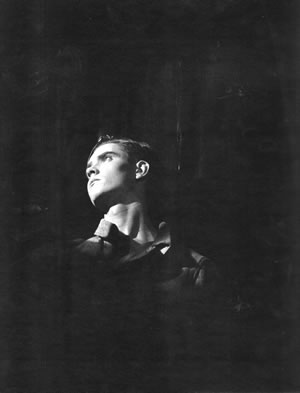
CRIMINAL CODE
1930
In 1922 a small group of students who were aspiring thespians, met in a local drinking establishment and purposed creating a student theatre on the MU campus. From this inauspicious beginning The Missouri Workshop Theatre was established as an extracurricular student activity. In 1925, Professor Donovan Rhynsburger joined the English faculty and became the producing director for the workshop. His prior experience and academic training served to enhance the artistic integrity of the productions which were presented at the Hall Theatre on 9th Street as well as at an abandoned cafeteria in Lathrop Hall and occasionally on the stage in Jesse Hall.
Under his leadership and professional direction the organization became a viable theatrical enterprise that made an invaluable contribution to the cultural life of the campus and surrounding community. During the next thirty-five years, The Missouri Workshop Theatre presented more than 250 productions. Professor Rhynsburger also originated a summer season, aptly called The Rooftop Theatre Under The Stars that presented productions on the roof of the education building. This proved to be an innovative program that kept the arts alive and vibrant during the difficult years of the depression.
Essentially a one-person department during the early history of the department, Professor Rhynsburger played the multiple roles of teacher, director, producer and scenic, lighting and costume designer. During World War II, he initiated the "Rinsewater Rag" a newsletter that was distributed to Missouri Workshop members who were in the armed services. Professor Rhynsburger founded the Original One Act Playwriting Contest, which acknowledged the emerging talent of Tennessee Williams, who was pursuing a degree in Journalism at the University of Missouri. He also created the Intramural Play Tournament, which eventually became the Missouri High School Speech and Debate Tournament, considered a valued contributions to the arts in Missouri.
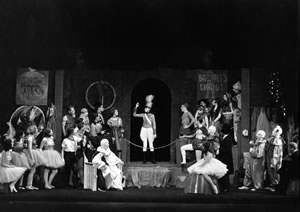
HE WHO GETS SLAPPED
1930
In 1960, his dream of an academic program in theatre, housed in a fully equipped facility was finally realized with the completion of The Fine Arts Building and University Theatre. Immediately thereafter, additional faculty lines were created which brought an expanded curriculum, the establishment of undergraduate and graduate degree programs and unique initiatives such as The Summer Repertory Theatre and The Black Theatre Workshop.
Theatre and Communication disciplines were combined in the Department of Speech and Dramatic Arts until 1986 when the School of Fine Arts was established and Theatre was granted independent departmental status.
Today, the MU Department of Theatre offers the BA, MA and PhD in Theatre. Through the medium of a traditional liberal arts theatre curriculum, undergraduate students are introduced to dramatic literature, performance studies, theatre history, theatre design and technology as well as methods for using creative imagination and artistic collaboration. Graduate courses in theatre history, dramatic literature, theory, and criticism develop research skills, which are manifested in reports and papers and, on the doctoral level, the writing of dissertations.
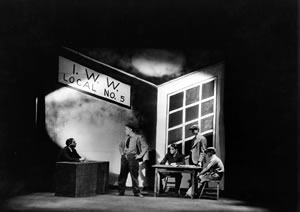
THE HAIRY APE
1932
Our classes amplify our students' theatrical awareness by examining the global heritage of theatre. The research, analysis, and publication by faculty scholars increase the knowledge and understanding of that heritage, as do the research, analysis, and creative work of faculty directors and designers. Our production program presents the theatre in action by exercising our students’ performance skills and providing an opportunity for continuous examination of the diverse processes by which theatre is created.
Since 1925, the Department of Theatre has sustained a nationally recognized program of liberal arts theatre studies. Our mission as scholars, artists, and teachers is to prepare our students for economic participation in society, harmonious coexistence with their fellow beings, the appreciation of their own lives, and the comprehension of human existence.
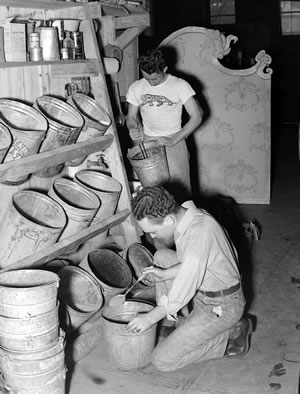
Scene Construction
1940
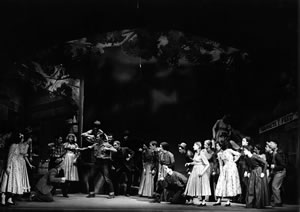
THE DARK OF THE MOON
1949
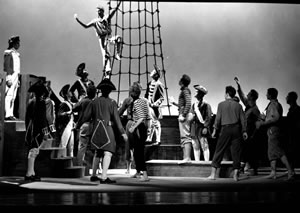
BILLY BUDD
1951